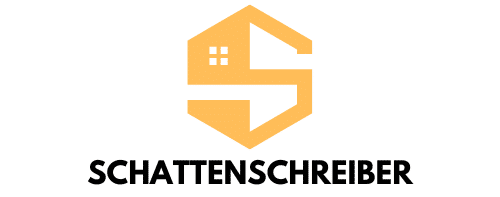How Can Machine Learning Enhance Personalized Fitness Regimens?

In an era where data is the new currency, the fitness industry is not lagging behind in leveraging the power of machine learning and artificial intelligence. These technological advancements have enabled personalized fitness regimens to become more accurate, efficient, and user-friendly. This article, dear readers, will explore how machine learning enhances these regimens and aids in attaining fitness goals more effectively.
The Intersection of Fitness and Technology
The fusion of fitness and technology has been a game-changer. User experience has transformed, making it more interactive, personalized, and data-driven. Let’s delve into how machine learning is revolutionizing fitness regimens.
Additional reading : What Is the Future of Genetic Editing in Disease Prevention?
Apps have become quintessential in our lives, and fitness apps are no different. These apps help to track workouts, provide real-time feedback, and offer personalized plans based on user data. Machine learning algorithms aid these apps in understanding and analyzing user data, which helps in customizing workout plans effectively.
Machine learning is not just confined to fitness apps. It captures a wider spectrum, including wearable fitness technology. These wearables provide real-time data about heart rate, steps walked, calories burned, sleep patterns, and much more. Machine learning algorithms can process this data to provide insightful feedback, helping users to understand their health better.
In parallel : Find your ideal adventure with perfect mystery boxes
Personalized Workout Plans: Tailored to Your Needs and Goals
Personalized workout plans are an essential component of any fitness regimen. They act as a roadmap that guides users to achieve their fitness goals. Let’s understand how machine learning refines these plans.
Machine learning algorithms can analyze a user’s fitness data and identify patterns. Based on this analysis, personalized workout plans can be generated. For instance, if the data reveals that a user burns more calories during morning workouts, the algorithm can suggest that the user schedule more intense workouts in the morning.
Additionally, machine learning can help in setting realistic goals based on the user’s fitness level and progress rate. It can also recommend changes in workout plans, adjusting them according to user feedback and performance. This real-time feedback loop makes the workout plans flexible and adaptive.
Real-Time Feedback: Your Virtual Coach
Real-time feedback is a game-changer in the fitness industry. It’s like having a personal coach in your pocket, guiding you through each step of your workout. Let’s explore how machine learning enhances this feedback mechanism.
Machine learning algorithms can analyze workout data in real time. This allows the fitness apps and wearables to provide instant feedback. For instance, if a user’s heart rate is too high during a workout, the app can suggest slowing down or taking a break.
Furthermore, these algorithms can learn from past workout data and predict future performance. This prediction can help in planning future workouts more effectively. For instance, if the data reveals a consistent improvement in the user’s stamina, the app can suggest gradually increasing the intensity of the workouts.
Health Monitoring: A Comprehensive Approach
Health is not just about physical fitness. It’s a comprehensive approach that includes mental wellbeing, sleep, nutrition, and more. Let’s see how machine learning can provide a holistic health monitoring system.
Machine learning can analyze data from various sources like sleep trackers, nutrition apps, and mental health apps. This data can provide a comprehensive view of the user’s health. For example, if the data reveals that the user is not getting enough sleep, the app can suggest workouts that help in improving sleep quality.
Additionally, machine learning can identify correlations between different aspects of health. For instance, it can reveal that a user’s mood improves on days when they workout. This insight can motivate the user to maintain regular workouts.
Conclusion
The integration of machine learning in fitness regimens is a promising trend. With the ability to provide personalized workout plans, real-time feedback, and comprehensive health monitoring, machine learning is set to revolutionize the fitness industry.
It’s fascinating to see how a blend of technology and fitness can produce such powerful and impactful results. As the capabilities of machine learning continue to evolve, so will the sophistication and effectiveness of personalized fitness regimens, making the journey to health and fitness more enjoyable and rewarding for you.
Machine Learning and Personal Trainers: A Dynamic Duo
The role of personal trainers in fitness cannot be understated. They craft personalized workout plans, motivate their clients, and help them achieve their fitness goals. However, with the advent of machine learning in fitness apps, the role of personal trainers is being redefined.
Machine learning algorithms can work in tandem with personal trainers to offer a more tailored fitness experience. By analyzing a user’s fitness data, these algorithms can provide insights into the user’s fitness level, workout routines, and progress rate. This data-driven approach can assist personal trainers in creating more effective workout plans and achieving fitness goals more efficiently.
Additionally, machine learning can also help in injury prevention. For example, by analyzing data from a user’s previous workouts, the algorithm can identify patterns that could lead to potential injuries. This could be an invaluable tool for personal trainers, enabling them to adjust workout routines to prevent injuries before they occur.
Machine learning can also motivate users to maintain regular workouts. Fitness apps can send personalized notifications and motivational messages based on the user’s workout data. This can be a powerful motivational tool, encouraging users to stick to their workout routines and achieve their fitness goals.
Google Scholar and Machine Learning: A Wealth of Information
In the realm of academic research, Google Scholar is a treasure trove of information. Scholars and researchers worldwide have conducted various studies on the intersection of machine learning and physical fitness. These studies provide valuable insights into the effectiveness of machine learning in enhancing personalized fitness regimens.
A growing body of research suggests that machine learning can significantly improve the accuracy and efficiency of workout plans. By analyzing vast amounts of data, machine learning algorithms can create highly personalized workout plans that cater to the unique needs and goals of each user.
Furthermore, studies show that real-time feedback provided by machine learning algorithms can enhance the effectiveness of workouts. This real-time feedback can guide users during their workouts, helping them to perform exercises correctly and avoid injuries.
These scholarly studies reinforce the fact that machine learning is a powerful tool in the fitness industry. They highlight the potential of machine learning in revolutionizing personalized fitness regimens and helping users achieve their fitness goals more effectively.
Conclusion
In conclusion, machine learning is transforming the landscape of the fitness industry. By offering personalized workout plans, real-time feedback, and comprehensive health monitoring, it has brought about a paradigm shift in fitness regimens.
Machine learning’s ability to analyze vast amounts of data and provide actionable insights is truly remarkable. Whether it’s helping personal trainers craft effective workout routines, preventing potential injuries, or motivating users to stick to their workouts, the possibilities are endless.
As we continue to harness the power of machine learning, we can expect even more sophisticated and efficient fitness apps and wearables. The future of fitness is undoubtedly intertwined with the advancement of machine learning, making the journey towards achieving fitness goals more rewarding and enjoyable. The fusion of technology and fitness shows us that the road to health and fitness is not only attainable but also customizable, personal, and exciting.
